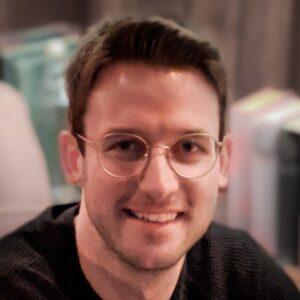A lot of people congratulate me when I tell them I can see myself writing for a long time, maybe for the rest of my life.
“That’s so great, looks like you found your thing!”
“I wish I could say that about anything I do.”
“Awesome, I still don’t know what my passion is.”
Now don’t get me wrong, I do love writing and I’m grateful I found what feels like the foundation of a sustainable career, but there is a big misconception about discovering your passion that, from the outside, is hard to see:
We assume finding what you love is liberating, but once you do, you’ll fight to keep doing it for the rest of your life.
First of all, the discovery is a slow, meandering process. You may have already done it for years by the time you realize you’ve found your calling. What’s more, the better you become at doing your work, the more passionate you’ll feel about it. Also, the more passion you bring to it while you’re still an amateur, the faster you’ll achieve mastery and the benefits it affords. It’s a cyclic relationship rolling down a hill and building momentum takes time.
Second, while Resistance beats some of us before we ever allow ourselves to get there, it’s also an undying, never-subsiding enemy on our way to fulfilling our destiny. Many have quit after finding the right thing.
“You know, Hitler wanted to be an artist. At eighteen he took his inheritance, seven hundred kronen, and moved to Vienna to live and study. He [sold art for a living, even] applied to the Academy of Fine Arts. Ever see one of his paintings? Neither have I. Resistance beat him. Call it overstatement but I’ll say it anyway: it was easier for Hitler to start World War II than it was for him to face a blank square of canvas.” — Steven Pressfield in The War of Art
Finally, and this is what makes finding your passion outright dangerous, the world will now forever try to take it from you. Not just in obvious ways — the fifteenth rejection from a publisher, the third time you’re denied the promotion — but with subtle, seemingly great alternatives.
That’s because the world craves expert knowledge and inspiring leadership. As soon as you develop an ounce of either, it’ll barrage you with opportunities to share it, spread it, get paid for it. But to the entrepreneur, the artist, the entertainer, these are just side effects on a long, winding road towards fate.
This’ll happen faster than you might imagine, as in today’s world of highly specialized skills, getting to 80% could put you in the top 10% of your field.
Cue the detours. If you’re a writer, you’ll be invited to speak, to write things for money, to join startups on their good, but unrelated mission. If you’re a founder, you might find yourself on a thought leadership forum, a podcast, a radio show, wondering why you left the office.
And so, finding yourself will not set you free. To the contrary, it creates an all-powerful, all-consuming responsibility: to keep doing the work you were meant to do.
That’s a burden you’ll be stuck with forever. To make your art and live your craft, not just daydream about it. To do this to the exclusion of all the other good — but not great — things you could be doing.
True, it feels great when you manage to stick to your guns, but this is more limiting than pursuing a make-do career and not worrying about the fallout of dispersed focus. The settler can spread his attention many ways without causing serious damage, the artist reaching for the stars must say no forever.
And so, few things are more dangerous than finding what you love. One struggle turns into another, except now you’re sure you must not fail. But it’s this certainty that makes all the difference.
We might carry a heavier load now, but for some reason, it feels easier to bear.
That’s why, no matter how much they know about any of this, I always give the same answer to my friends’ compliments:
“Yeah, I wouldn’t have it any other way.”



